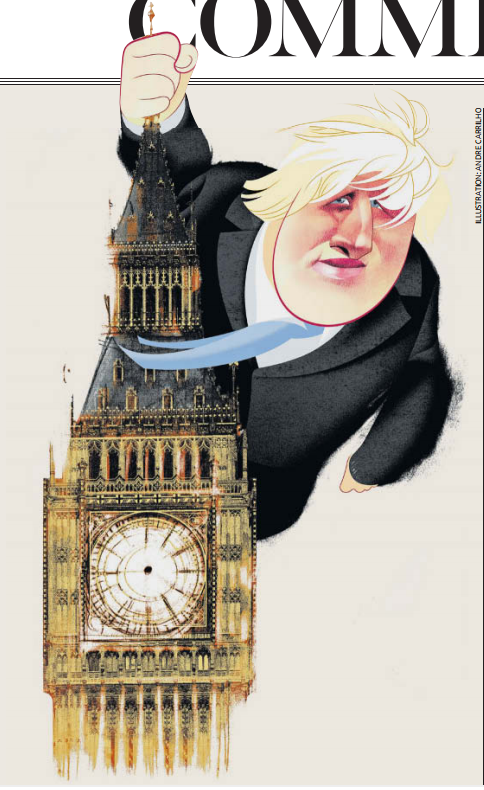Daily catch-up: Ed Miliband, Ed Balls and market economics; and David Cameron’s missing foreign policy
What you need to know from over the weekend


Your support helps us to tell the story
From reproductive rights to climate change to Big Tech, The Independent is on the ground when the story is developing. Whether it's investigating the financials of Elon Musk's pro-Trump PAC or producing our latest documentary, 'The A Word', which shines a light on the American women fighting for reproductive rights, we know how important it is to parse out the facts from the messaging.
At such a critical moment in US history, we need reporters on the ground. Your donation allows us to keep sending journalists to speak to both sides of the story.
The Independent is trusted by Americans across the entire political spectrum. And unlike many other quality news outlets, we choose not to lock Americans out of our reporting and analysis with paywalls. We believe quality journalism should be available to everyone, paid for by those who can afford it.
Your support makes all the difference.1. This is another of Sir William Davenant’s wonderful views of old London: the Thames looking west to St Paul’s cathedral, painted c.1769 by Samuel Scott.
2. “They don’t like each other and they don’t respect each other.” A Labour frontbencher quoted in The Sunday Times yesterday (pay wall) about Ed Miliband and Ed Balls. I would say it is accurate. “Ed M doesn’t believe markets work; Ed B believes markets work. It is a fundamental difference.” This, attributed to an anonymous aide, is less so, unless you pedantically insert “tend to” twice.
Miliband’s economic vision was helpfully set out in Prospect last month by Stewart Wood, the leader’s adviser who attends Shadow Cabinet. I regard Wood with great respect, not least because he is a fellow Decemberists fan (their show at Brixton Academy on Saturday was wonderful – you can read Simon O’Hagan’s review of their earlier Glasgow concert here), so I hesitate to criticise, but I think his analysis is mistaken and his conclusions consensual.
Wood’s article is an attack on the straw system of “market fundamentalism”, which he defines as a “view of markets ... as an engine of efficiency, stability and prosperity”. Anyone who thinks markets are an engine of stability would be a fundamentalist of some sort; but no one thinks that. Nor does anyone believe that the coalition has succeeded in defining the recession as “state failure, not market failure”, because it was neither: it was the down phase of the business cycle for which the Labour government was poorly prepared because it continued to borrow during a boom.
Admittedly, the 2008 crash was a special kind of market downturn, because it was a credit crunch that required a huge extension of government-guaranteed lending to fix. But it did not undermine the case for markets generally, and that is the difference between Ed M and Ed B.
Fortunately, it may not be a difference that affects anything in practice. Wood writes: “All this suggests a diverse and very different agenda to that of postwar British governments”, before outlining exactly the same agenda as that pursued by most postwar British governments and indeed by the present coalition. He is in favour of “skills training” and a higher minimum wage.
Still, Wood does at least disown what I call Swedenism: “It must not simply be a matter of picking our favourite north European country and copying it wholesale.” In his case it has usually been Germany that is the model, but now it isn’t. That is progress.
_______
3. I thought this was very good by Rupert Cornwell in The Independent on Sunday, coolly taking apart the criticism that Barack Obama doesn’t have a foreign policy:
“Neither Clinton nor the Republican contenders offer alternatives: not Jeb Bush’s vaguely hawkish platitudes last week in a ‘major foreign policy speech’ which could not escape the shadow of his brother’s Iraq debacle; and certainly not Chris Christie’s boast that if he’d been in the White House, Putin would have backed down over Ukraine. Dream on.”
A lot of that applies to David Cameron’s alleged lack of a foreign policy too.
4. The Top 10 in The New Review, the Independent on Sunday magazine, was Synonyms That Sound Like Opposites. I managed to squeeze in 12 by mentioning flammable and inflammable, and fat chance and slim chance, in the introduction. But I didn’t include regardless and irregardless, Issy Flamel, because even Oliver Kamm accepts that irregardless is an unnecessary invention.

5. Also in The Independent on Sunday, I wrote that Boris Johnson is coming, and there is nothing that anyone can do about it. I am lucky that the editor saw fit to ask André Carrilho, our brilliant illustrator, to draw the picture for it.
I didn’t get into the detail of whether George Osborne has made a pact with Johnson, as has been reported. I think this is unlikely: Osborne has merely accepted that Johnson has to be hugged close as part of the team. Osborne is also realistic enough to know that, if there is a leadership contest later this year – possibly in December to avoid the need for a mayoral by-election – Johnson is well placed to win it. Osborne knows that he cannot even be sure of beating Theresa May to be the second name put to the party membership for the final run-off.
6. And finally, thanks to Martin Williams for this, via David Smith:
“The best way to get around Norway is with a Fjord Escort.”
Join our commenting forum
Join thought-provoking conversations, follow other Independent readers and see their replies
Comments